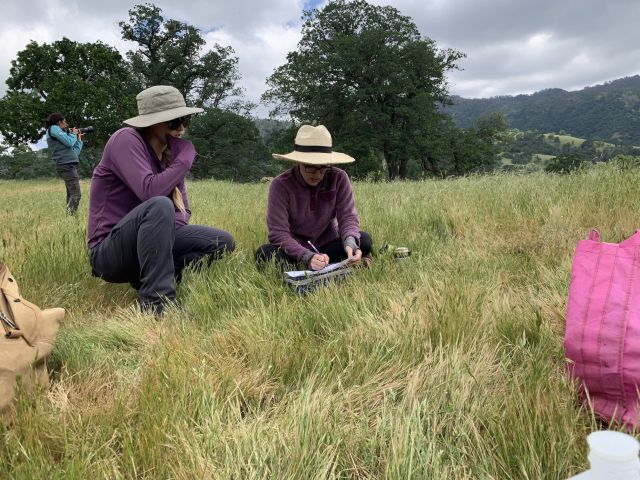Congratulations Dr. Orr!
Devyn completed her dissertation defense titled: Interactions among multiple drivers of global change: climate-mediated effects of wild and domestic herbivores on plant communities and ecosystem function in southcentral California.

Devyn virtually presented her seminar to family, friends, and colleagues.
Title: Interactions among multiple drivers of global change: climate-mediated effects of wild and domestic herbivores on plant communities and ecosystem function in southcentral California
Committee: Hillary Young, Carla D’Antonio, Lauren Ponisio
Abstract: Ecosystems around the world are being profoundly altered by anthropogenic global change. Two prominent and interacting drivers of global change in grassland and savanna ecosystems are climate change and changing large herbivore communities, specifically declining populations of wild ungulates and their replacement with livestock. In the face of these shifts, understanding how climatic conditions mediate herbivore control of ecosystem structure and function is imperative, particularly on rangelands, which cover almost a third of the United States and an estimated 50% of ice-free land globally. I initiated a large-scale herbivore exclosure experiment, replicated across a topoclimatic gradient in Kern Co., CA to investigate 1) the effects of both wild ungulates and cattle on plant community diversity and vegetation structure, and 2) whether the magnitude or direction of herbivore impacts varies depending on climatic context. I demonstrate the cascading consequences of wild ungulate 'loss' and domestic herbivore 'introduction', by investigating a) the consequences of ungulate-mediated change in vegetation structure on microclimatic conditions and larval tick survival, and b) how shifts in plant composition and diversity alter the availability of floral resources (i.e., nectar) for pollinators. These studies demonstrate pathways by which both wild and domestic herbivores can have significant impacts on vital ecosystem functions, disease transmission and pollination, and how these impacts will likely vary with climate. This work improves our ability to understand and predict the consequences of compounding drivers of global change on the structure and function of savanna ecosystems within and beyond California.
Devyn was the recipient of a prestigious post-doctoral fellowship position at the USDA in Oregon, an amazing continuation to her work. Congratulations Devyn! The Young Lab will miss you yet looks forward to seeing your future accomplishments!